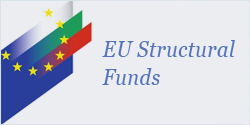
A strategy to boost the development of the Danube Region was proposed by the European Commission on 8 December 2010 (Commission Communication - EU Strategy for the Danube Region).
On 3 February 2011 in Budapest, Commissioner for Regional Policy, Johannes Hahn, together with Hungarian Foreign Minister Janos Martonyi, announced which countries and regions will coordinate the priority areas of work for the EU Strategy for the Danube Region (Press Release: European Commissioner Hahn announces priority area coordinators for EU Strategy for Danube Region). Member States endorsed the EU Strategy for the Danube Region at the General Affairs Council on 13 April 2011.
In the Presidency Conclusions, the European Council also supported the Strategy on 24 June 2011. This marks the beginning of the implementation phase.
What’s the issue?
The Danube Region covers 8 EU countries (Germany, Austria, Hungary, Czech Republic, Slovak Republic, Slovenia, Bulgaria and Romania) and 6 non-EU countries (Croatia, Serbia, Bosnia and Herzegovina, Montenegro, Ukraine and Moldova).
The Region is facing several challenges:
- environmental threats (water pollution, floods, climate change)
- untapped shipping potential and lack of road and rail transport connections
- insufficient energy connections
- uneven socio-economic development
- uncoordinated education, research and innovation systems
- shortcomings in safety and security
The Strategy has been divided into 11 priority areas, thus sustaining the four main Strategy pillars:
A) Connecting the Danube Region
1) To improve mobility and intermodality
2) To encourage more sustainable energy
3) To promote culture and tourism and people-to-people contacts
B) Protecting the environment in the Danube Region
4) To restore and maintain water quality
5) To manage environmental risks
6) To preserve biodiversity, landscapes and the quality of air and soils
C) Building prosperity in the Danube Region
7) To develop the knowledge society through research, education and information technologies
8) To support the competitiveness of enterprises
9) To invest in people and skills
D) Strengthening the Danube Region
10) To step up institutional capacity and cooperation
11) To work together to tackle security and organised crime
Priority Area 3: To promote culture and tourism; people to people contacts
With common history and tradition, culture and arts reflecting the diverse communities of the Region, as well as its outstanding natural heritage, the Region has attractive assets. The Danube Delta is a world heritage site offering sporting and other recreational options. A common and sustainable approach to improving and publicizing these opportunities should make the Danube Region a European and world "brand".
The coordination of each Priority Area is the task of Member States (together with non Member States or regions, except for topics which the EU addresses at State level, such as security, serious and organized crime), in consultation with the Commission, and relevant EU agencies and regional bodies. ‘Priority Area Coordinators’, who can demonstrate Danubewide commitment, acceptance and expertise, ensure implementation (e.g. by agreeing on planning, with targets, indicators and timetables, and by ensuring wide contacts between project promoters, programmes and funding sources, providing technical assistance and advice). This work is trans-national, inter-sectoral and inter-institutional.
Bulgaria and Romania have been appointed as coordinators of Priority Area 3, whereas the facilitation role of the Commission is assisted by National Contact Points, the Ministry of Regional Development and Public Works being the NCP in Bulgaria. These ensure co-ordination in each country, identify the relevant contacts, and above all advance practical aspects of the work.
8, Slavyanska Str., Sofia 1052, Bulgaria
BULSTAT: BG130169256


